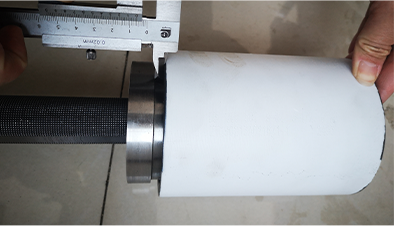- Afrikaans
- Albanian
- Amharic
- Arabic
- Armenian
- Azerbaijani
- Basque
- Belarusian
- Bengali
- Bosnian
- Bulgarian
- Catalan
- Cebuano
- Corsican
- Croatian
- Czech
- Danish
- Dutch
- English
- Esperanto
- Estonian
- Finnish
- French
- Frisian
- Galician
- Georgian
- German
- Greek
- Gujarati
- Haitian Creole
- hausa
- hawaiian
- Hebrew
- Hindi
- Miao
- Hungarian
- Icelandic
- igbo
- Indonesian
- irish
- Italian
- Japanese
- Javanese
- Kannada
- kazakh
- Khmer
- Rwandese
- Korean
- Kurdish
- Kyrgyz
- Lao
- Latin
- Latvian
- Lithuanian
- Luxembourgish
- Macedonian
- Malgashi
- Malay
- Malayalam
- Maltese
- Maori
- Marathi
- Mongolian
- Myanmar
- Nepali
- Norwegian
- Norwegian
- Occitan
- Pashto
- Persian
- Polish
- Portuguese
- Punjabi
- Romanian
- Russian
- Samoan
- Scottish Gaelic
- Serbian
- Sesotho
- Shona
- Sindhi
- Sinhala
- Slovak
- Slovenian
- Somali
- Spanish
- Sundanese
- Swahili
- Swedish
- Tagalog
- Tajik
- Tamil
- Tatar
- Telugu
- Thai
- Turkish
- Turkmen
- Ukrainian
- Urdu
- Uighur
- Uzbek
- Vietnamese
- Welsh
- Bantu
- Yiddish
- Yoruba
- Zulu
Understanding the Importance of Tubing Collars in Oil and Gas Well Operations for Enhanced Efficiency
Understanding Tubing Collars Importance and Applications in Oil and Gas Drilling
In the world of oil and gas exploration, the equipment used in drilling operations is critical to efficiency, safety, and overall success. Among these components, tubing collars play a significant role in the structure and functionality of the drilling rig. In this article, we will explore what tubing collars are, their various types, applications, and reasons why they are essential in the drilling process.
What Are Tubing Collars?
Tubing collars are specialized fittings used to connect different segments of tubing in a wellbore. They act as a mechanical link between lengths of tubing, ensuring the integrity and stability of the entire system. Designed to handle high pressure and temperature conditions found deep underground, these collars are crucial for maintaining the flow of hydrocarbons from the reservoir to the surface.
Typically made from durable materials such as carbon steel or alloy steel, tubing collars are engineered to withstand corrosive environments found in many drilling operations. They can be found in various sizes and configurations to match the specific requirements of different drilling projects.
Types of Tubing Collars
There are several types of tubing collars that are commonly used in drilling operations
1. Threaded Collars These are the most common type, featuring threads on either end that allow for easy connection and disconnection of tubing. They provide a secure, leak-proof seal and are widely used in various drilling applications.
2. Welded Collars Unlike threaded collars, welded collars are permanently attached to the tubing. This type offers enhanced strength and stability, making them ideal for high-pressure environments where reconfiguration might not be necessary.
tubing collar

3. Flanged Collars These collars have a flange on one or both ends, allowing them to be bolted to other equipment. Flanged collars are used in applications where easy maintenance and replacement are necessary.
4. Screw-on Collars As the name suggests, these collars are designed to be screwed onto the tubing. They are typically used in operations where quick assembly or disassembly is needed.
Applications of Tubing Collars
The primary application of tubing collars is in oil and gas well drilling. They facilitate the process of adding or removing sections of tubing as the well is being drilled or serviced. This flexibility is vital for adapting to various depths and conditions encountered in subsurface operations. In addition to oil and gas extraction, tubing collars may also be utilized in geothermal energy drilling and other applications requiring fluid transfer through vertical and horizontal pathways.
Importance of Tubing Collars
The importance of tubing collars cannot be overstated. They not only enable the connection of tubing sections but also ensure the structural integrity of the entire tubing system. A high-quality collar prevents leaks that could lead to catastrophic failures, environmental hazards, or loss of revenue. Moreover, the choice of the right type of collar can significantly affect the overall efficiency of the drilling process.
Proper maintenance and inspection of tubing collars are also crucial, as wear and tear can compromise their functionality. Regular checks help in identifying any signs of corrosion, cracks, or physical damage, allowing for timely replacements that enhance operational safety.
Conclusion
In conclusion, tubing collars are essential components in the oil and gas drilling industry. Their ability to connect and secure different sections of tubing is vital for the efficient and safe extraction of natural resources. Understanding the various types of tubing collars and their applications allows for better decision-making in drilling operations, ultimately leading to improved outcomes in oil and gas exploration and production. As technology continues to evolve, the design and materials of tubing collars will likely advance, further enhancing their performance and reliability in the field.
-
Tubing Pup Joints: Essential Components for Oil and Gas OperationsNewsJul.10,2025
-
Pup Joints: Essential Components for Reliable Drilling OperationsNewsJul.10,2025
-
Pipe Couplings: Connecting Your World EfficientlyNewsJul.10,2025
-
Mastering Oilfield Operations with Quality Tubing and CasingNewsJul.10,2025
-
High-Quality Casing Couplings for Every NeedNewsJul.10,2025
-
Boost Your Drilling Efficiency with Premium Crossover Tools & Seating NipplesNewsJul.10,2025







